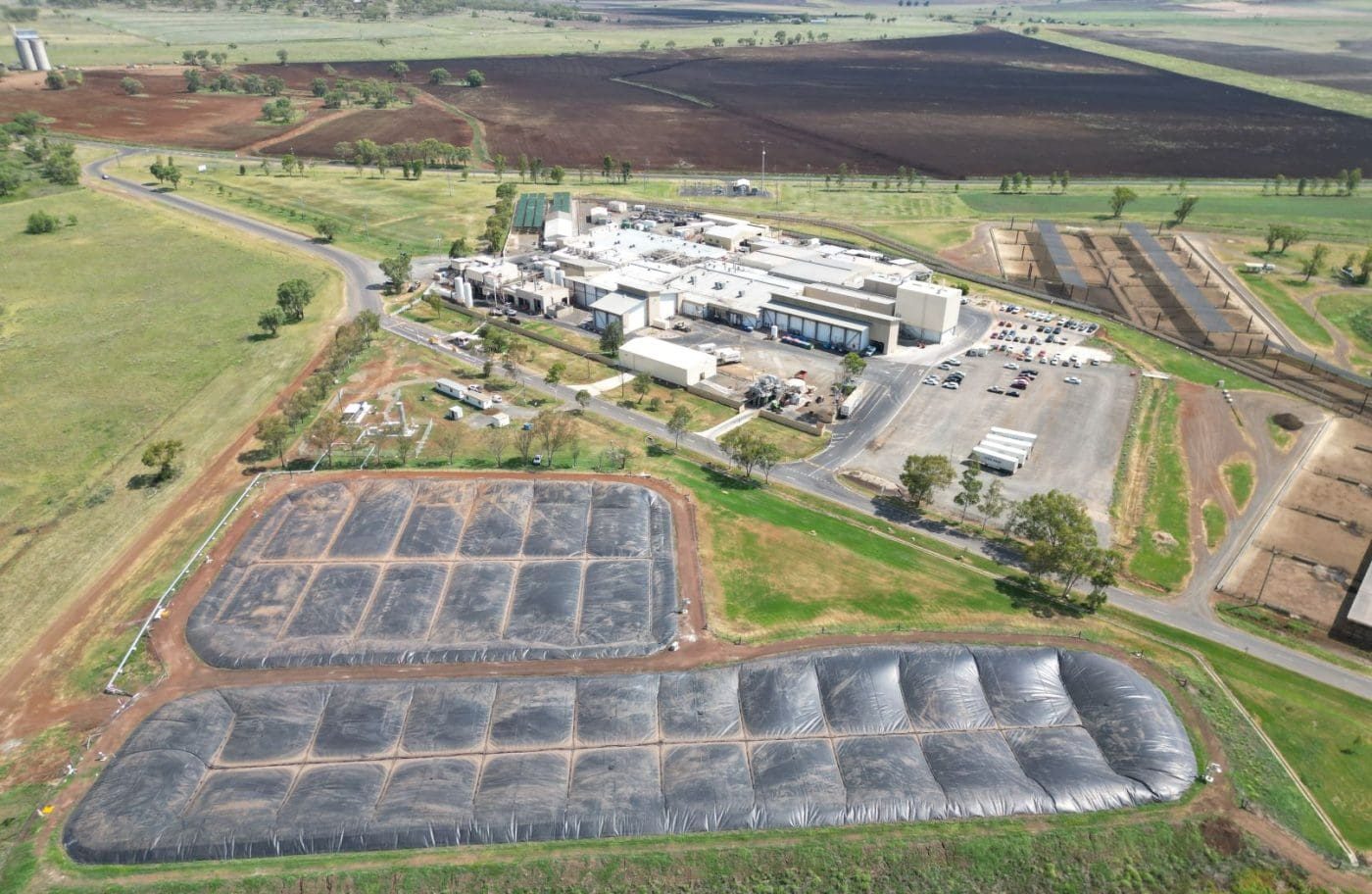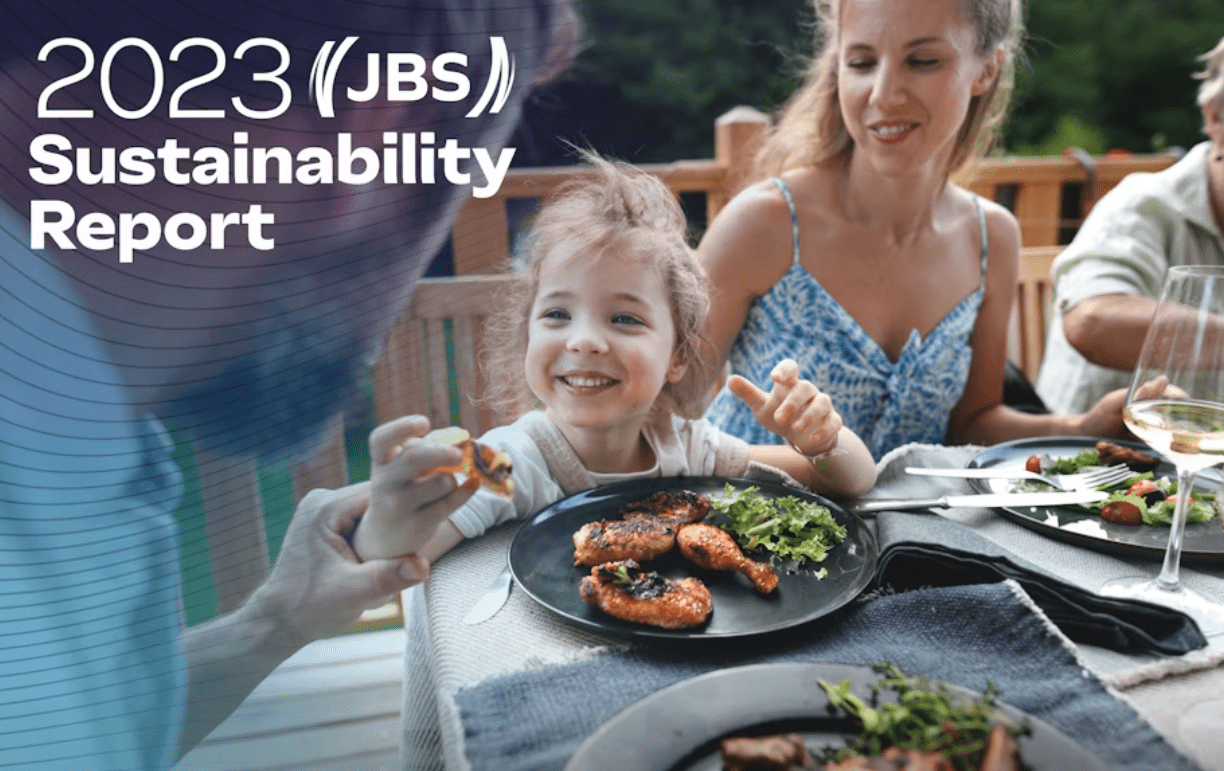THE world’s largest meat processor has reaffirmed its commitment to net zero emissions by 2040, while moving away from an international target setting organisation.
JBS’s target has arguably been one of the global meat industry’s most heavily scrutinised climate targets – with the New York attorney general earlier this year suing the company for greenwashing and alleging its target could not be met due to its plans for expansion. Beef Central is unaware of the outcome of that case.
The company’s 2023 sustainability report, released last month, says it last year spent US$150 million (AU$220m) in reducing emissions from JBS facilities and US$50m (AU$73m) on reducing emissions in its supply chain. Some of those projects are happening in Australian plants like Beef City and Scone.
In his message to the report, JBS chairman Jerry O’Callaghan said the agricultural had a good record of adapting climate challenges and improving efficiency.
“According to FAO (UN Food and Agriculture Organisation), between 1961 and 2009, agricultural output has increased by 150–200 percent, while croplands have expanded by only 12 percent.
“To achieve another leap of this magnitude, we need to facilitate producers’ access to new technologies and technical assistance. Consumers are becoming increasingly aware and demanding about the origin of the food they purchase.”
JBS moves away from the SBTi
While JBS is continuing with its net zero goals, the sustainability report confirmed the company had moved away from an organisation called the Science Based Targets initiative.
The SBTi was formed by a group of environmental organisations to set a standard for corporate targets. Woolworths recent “deforestation-free” commitment was set as part of its affiliation with SBTi.
“During the two-year process of goal setting, SBTi created new requirements and draft methodologies for agriculture-based companies that fundamentally altered the goal-setting process,” the sustainability report said.
“As a result, many leading agricultural companies, including JBS, have not proceeded with setting targets through SBTi and are pursuing their environmental goals outside of the SBTi framework.”
Other organisations that have removed commitments from the SBTi include UK-based supermarket ASDA and US supermarket Walmart.
JBS said the net zero goals had been important to sparking action on-the-ground and was keen to continue with the target while saying that several factors outside the company’s control may hinder its ability to reach it.
Deforestation efforts focus on the Amazon
While deforestation has been a major topic in Australia, with new regulation coming in and pressure from environmental groups, the country did not rate a mention in the deforestation of JBS’s report.
The Amazon was the main focus, with the company’s Fund for the Amazon created in 2020 to restore degraded areas and support inclusive and profitable models that generate value for the standing forest. Last year the company put about Brazilian $72.8m (AU$20m) towards to fund.
It has two main deforestation-related goals:
- Delivering zero illegal deforestation in all Brazilian biomes by the end of 2025
- Advancing the Tropical Forest Alliance−aligned “Roadmap to 1.5°C” implementation plan for the Cattle Sector in the Amazon and Cerrado biomes
“The Fund operates within three main areas of action: Productive Chains in Open Areas, Bioeconomy, and Science and Technology,” Mr O’Callaghan said.
“Together, they leverage and enhance productivity in degraded areas, strengthen the business ecosystem around the standing forest with the support of disruptive and structuring solutions capable of adding value to forest products, and develop connectivity, mobility, and renewable energy.”
Great Southern producers highlighted
Earlier this year, the Australian arm of JBS completed one of the world’s largest surveys of emissions in grassfed cattle systems.
The JBS Farm Assurance Program driving the company’s enormous Great Southern Certified Grassfed brand program, did a full assessment of its producers with the aim to improve on-farm practices across seven pillars: soils, pastures, vegetation, water, livestock, people, and carbon.
JBS Australia last week released details of the company’s Beef City bio-energy harvest program, which has been calculated to remove 34,000t of CO2 emissions annually.

Focus on food security
A growing demand for protein is a constant theme in the JBS report and Mr O’Callaghan said food security needed to be part of climate targets.
“The key challenges of climate change and food security must be tackled in tandem to ensure reliable access to affordable, nutritious food,” he said.
“The FAO estimates a 20pc increase in demand for animal sourced foods for a global population expected to reach 10 billion people in three decades. Land use change and forest stability must be addressed alongside pasture and rangeland management and research to better understand soil health and carbon sequestration potential.
“In addition, more knowledge is required about livestock methane cycles, particularly in cattle.”


HAVE YOUR SAY